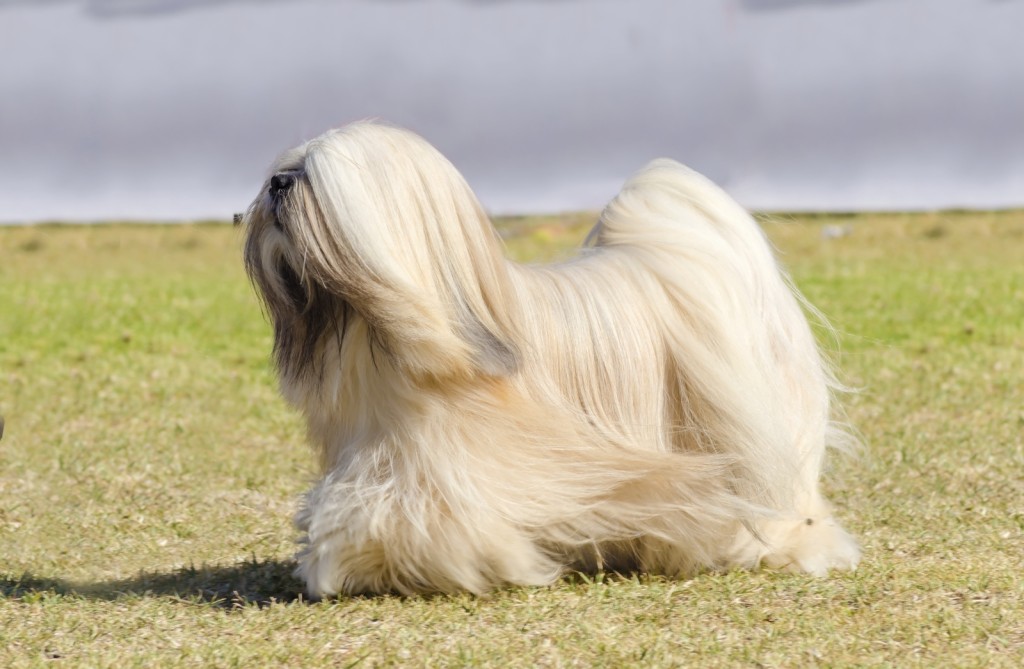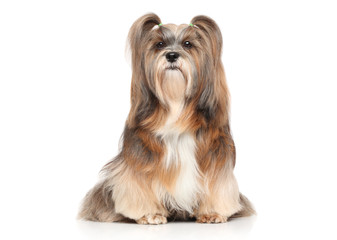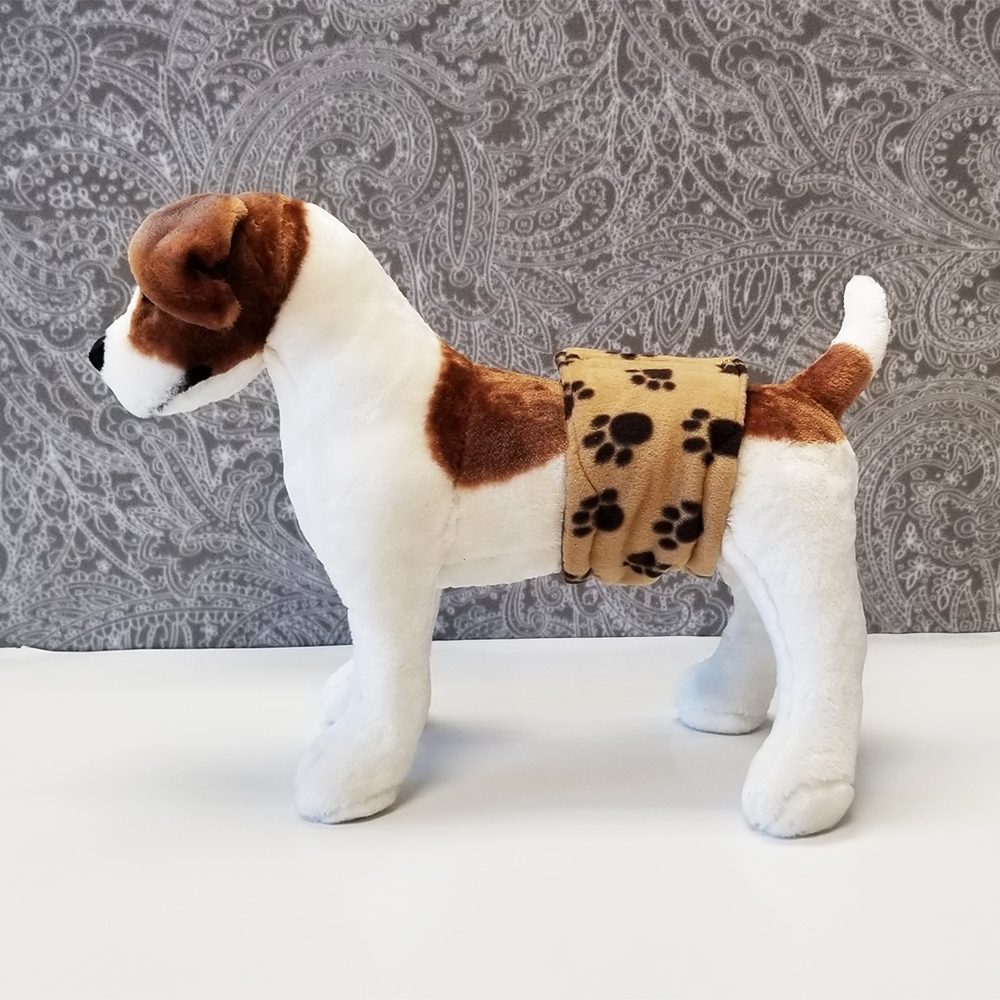Lhasa Apso

Lhasa Apso: The Regal and Loyal Tibetan Companion
Welcome to the comprehensive guide on the Lhasa Apso, a breed known for its noble heritage, distinctive flowing coat, and watchful personality. This page explores the Lhasa Apso, a small but confident breed steeped in Tibetan tradition, revered for its role as a sentinel and companion.
Overview
AKC Height: Males: 10-11″; females slightly smaller
AKC Weight: 12-18 pounds
Colors: Red Gold; White; Red; Grizzle; Golden; Black; Black and Tan; Cream. They can also come in other colors.
Life Expectancy: 12-15 years
Group: Non-Sporting Group
__________________________________________

Physical Characteristics
- Luxurious and Flowing Coat: Lhasa Apsos are celebrated for their long, dense, and straight coat, which can be found in various colors including gold, cream, honey, and slate.
- Sturdy and Confident Stance: Despite their small size, they have a well-built and balanced body, with a proud carriage that reflects their dignified nature.
Temperament and Personality
Lhasa Apsos are known for their calm, composed, and loyal demeanor. They possess a unique blend of independence and devotion, often forming strong attachments to their owners. While they may be aloof with strangers, they are affectionate and playful with their family.
Training and Exercise Needs
- Training: They respond best to patient and consistent training methods, with an emphasis on positive reinforcement. Early socialization is key to developing their well-rounded temperament.
- Exercise: Moderate exercise, including daily walks and playtime, is sufficient for this breed, as they are more laid-back compared to other small dogs.
- Mental Stimulation: Mental engagement through puzzle toys and gentle training exercises is beneficial for their intelligent minds.
Health and Nutrition
- Diet: A balanced diet suitable for a small, moderately active breed is essential. Regular vet check-ups are important to maintain their health.
- Health: Lhasa Apsos may develop certain health issues, including patellar luxation, hip dysplasia, progressive retinal atrophy (PRA), and dental problems. Regular veterinary check-ups, a nutritious diet, and proper dental care can help minimize the risk of these health problems and ensure a long and healthy life for Lhasa Apsos. Dog Health Dictionary
Grooming and Care
- Coat Maintenance: Their luxurious coat requires regular grooming to prevent matting and maintain its beauty.
- General Care: Routine health care practices, such as dental hygiene, nail trimming, and ear cleaning, are important for their overall well-being.
Living with a Lhasa Apso
- Family Compatibility: They are well-suited for families and individuals alike, known for their adaptability and affectionate nature.
- Adaptability: Lhasa Apsos adapt well to different living environments, thriving in both apartments and houses.
- Companionship: They form deep connections with their owners and enjoy being part of family life.
Responsible Ownership and Adoption
- Selecting a Breeder: Opt for breeders who focus on health, temperament, and the breed standard.
- Adoption Options: Considering adoption from shelters or breed-specific rescues is a commendable choice for providing a loving home to a Lhasa Apso.
.
Conclusion: The Lhasa Apso, with its regal appearance, serene personality, and loyal disposition, is an ideal breed for those seeking a small, affectionate, and dignified companion. Their adaptability and charming temperament make them a beloved pet in many homes.
Housebreaking
PUPPY HOUSEBREAKING tips: https://www.dog-breeds.net/puppy-housebreaking/
ADULT MARKING AND RETRAINING tips: https://www.dog-breeds.net/dog-housebreaking-marking-page/



